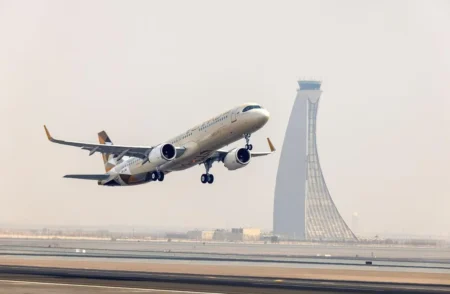WRITTEN BY CH FAISAL MAHMOOD
We had dwelt on the subject of Civil Aviation for long and more so since the previous Government put a New Civil Aviation Policy on the anvil. Cumulatively, we concerned ourselves with the misfortunes of our national carrier and travelling public, both tracing back to the adoption of non-reciprocal Open Sky Policy.
While commending our posture on the subject, our readers used to point out its similarity with the United States’ three major airlines asking for a Fair Sky Policy as regards the State owned carriers in the Gulf. But our similarity with them ends here; our base is different.
We go by what Pakistan’s Open Sky Policy has given to Pakistan. This is a legitimate and common ground on which policies are studied for new actions in national interest.
The previous aviation policy had a direct negative impact on PIA and Pakistan’s private sector airlines have not had the space to grow as would be justified from the volume of traffic in and from the country. Travelers didn’t receive any reduction in ticket prices; they were rather subjected to rank dictatorial attitude towards them and their travel agents. Carriers have subjected travel agents to zero commission and were competing directly with them; all leading to extra financial cost and unnecessary inconvenience to the traveler. Carriers earning well here give no economic spinoffs to local communities and are reported also to be generally conducting themselves imperiously. There is no significant employment generated; fewer local staff are employed and given to work more on less remuneration.
Now it is crystal clear that the Govt is going to end Open Sky Policy to boost local Aviation Industry’s Growth and from current Open Sky Policy to heading towards Fair Sky Policy which is imperative for the growth of the local aviation industry.
We have been suggesting since long that incentives first should be given to local and then to other carriers.
The committee constituted earlier to review the previous government’s Aviation Policy 2015 and the policies related to the aviation industry has suggested the measure which are going to support local airlines and other stakeholders as per the information pouring from Islamabad.
The data shows that in 2006 the Gulf carriers operated 90 flights a week from Pakistan. By 2013, they were operating 250 and by 2015, that number went up to 395. Now Gulf carriers are operating more than 425 flights including an Airbus 380 from Islamabad Airport.On the other hand, Pakistani registered airlines operated only 55 weekly flights to the United Arab Emirates (UAE). Pakistani airlines operated with small aircraft as compared to their rivals in the region.
As the new Aviation Policy have been submitted to Federal cabinet for the final approval, we hope that authors of the New Aviation Policy must have looked deeper into the industry and its work culture; they must have adopted the consultative process which we have been advocating previously and surely they must have given Pakistan a civil aviation environment worthy of its geographical and human resource positives.




